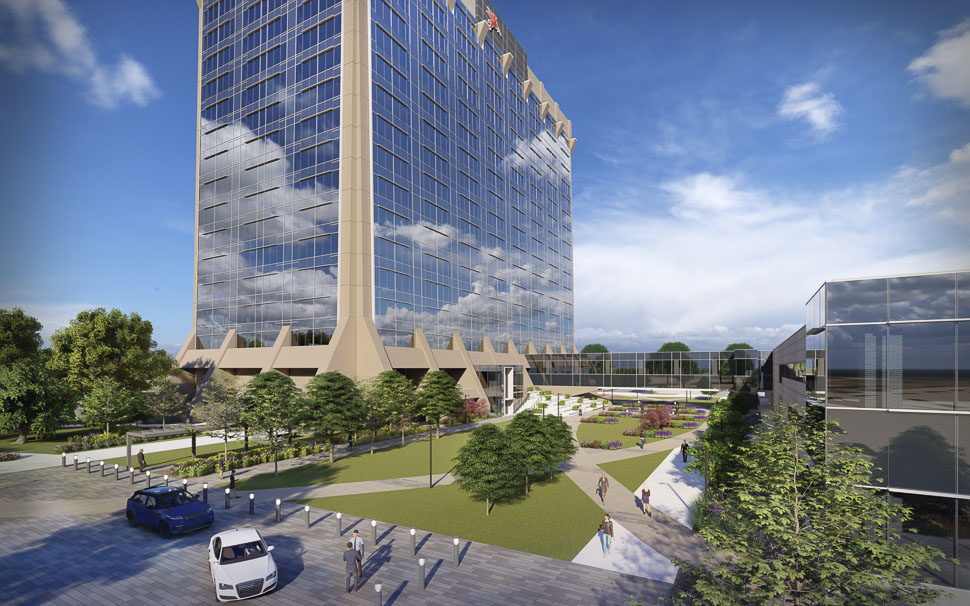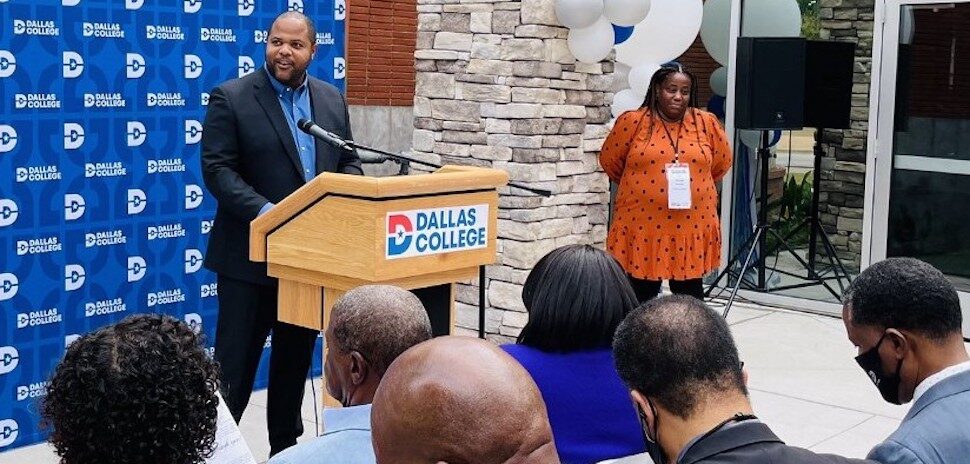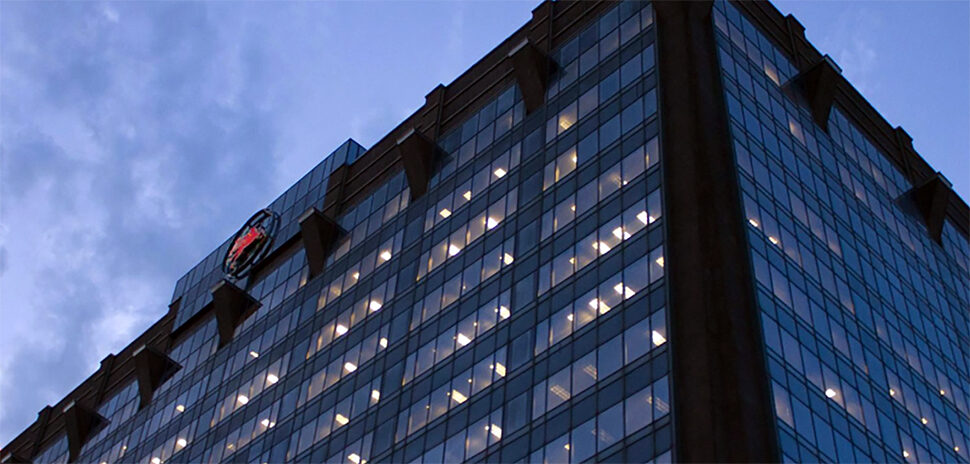As the COVID-19 pandemic continues to surge across the globe, Lyda Hill Philanthropies, in partnership with J. Small Investments, has revealed a new project it calls “a game-changer for science and tech in Dallas.”
The two partners announced plans for Pegasus Park, a future-focused redevelopment they say will accelerate life science and healthcare discoveries and boost nonprofit resiliency. Situated in a 23-acre, six-building campus strategically located near Dallas Design District and the Southwestern Medical District, the campus boasts a high-rise office tower that was featured in 1976 science fiction movie Logan’s Run.
In addition to state-of-the-art facilities and amenities, one of Pegasus Park’s most innovative qualities is its design. The park is intended to bolster biotech, social impact, and corporate innovation—its main four components are a biotech “plus” hub, a nonprofit hub, commercial tenants, and entertainment/dining venues.
And, Pegasus Park aims to be a “central location” for the likes of startups, industry leaders, social impact companies, and academics to network.
A social purpose redevelopment
Pegasus Park will transform the former ExxonMobil campus into a center for innovation and social impact, Steve Davis, president of J. Small Investments, said in a statement. “Pegasus Park exemplifies the spirit that has made Dallas one of the nation’s most dynamic cities and North Texas an influential region.”
Dallas-based Lyda Hill Philanthropies, which has a variety of focus areas in the science and nonprofit sector, said its team spent years exploring two concepts: building a biotech innovation cluster and a nonprofit shared space. After studying best practices in both areas, according to the organization, it became apparent Pegasus Park was the ideal place to converge the two.
Philanthropist Lyda Hill said she’s excited to create an epicenter for social impact and regional life science innovation. Pegasus Park is the largest impact investment of its kind in North Texas, according to a statement.
Both companies said Pegasus Park is a place that will generate profit but have a strong sense of purpose for the community—setting it apart from other mixed-use developments in the area.
Inside Pegasus Park
Pegasus Park, located at 3000 Pegasus Park Drive, is minutes from downtown Dallas and the medical district.
Located in an “underserved strip of the Stemmons Corridor,” the campus will provide dining, entertainment, work-and-play amenities, and other services to the area. Onsite (and open to the public) will be a fitness center, conference center, café, and indoor/outdoor lounge.
The more than 750,000-square-foot campus was originally constructed for Zale Corporation in 1970 before being bought by the former Mobil Oil Corporation in 1981. J. Small Investments then purchased the area from ExxonMobil Oil Corporation in 2015 after it was near vacant for over a decade.
The repurposed development will consist of around 550,000 square feet of modern renovated office space for commercial tenants, including an 18-story office tower. The intent is to attract and retain top talent, while creating synergy among tenants.
But a key component to Pegasus Park is the biotech hub.
Biotech hub for North Texas innovation
Lyda Hill Philanthropies and J. Small Investments want to establish a national biotech “plus” hub that will be a source for innovation in life sciences. The dedicated space, approximately 37,000 square feet, will have lab, training, and office area for a premium and flexible experience. Built-in partnership with a nationally recognized operator, the project will also offer personalized, tenant-driven services.
In all, the Biotech Hub will be an epicenter for regional innovation: The companies hope it will enhance North Texas’ reputation in scientific and medical excellence.
“The development will augment North Texas’ ability to develop thousands of high-paying jobs, attract intellectual and investor capital, enhance access to groundbreaking healthcare, and to recognize local expertise and technically skilled resources,” the companies said.
To do so, the plan is to provide month-to-month leases for science and tech entrepreneurs seeking to commercialize their healthcare-related businesses. As a synergistic center, Pegasus Park could serve as the go-to place for early-stage life science companies to develop into high-growth ventures.
Approximately 150,000 square feet of space will also be dedicated to social impact.
Pegasus Park’s Water Cooler is essentially designed to be a “community of social impact, nonprofit, and philanthropic tenants.” The hub will offer flexible office space for collaboration and problem solving, subsidized rent for tenants in the sector, access to philanthropic funds for furniture and infrastructure, and free or low-cost amenities and services to accelerate their missions.
Though Pegasus Park is set to open in early 2021, in response to COVID-19, the interior and exterior areas will be equipped with social-distancing and high-level cleaning protocols. The project architect is GFF and the general contractor is Scott + Reid.
Photo Gallery
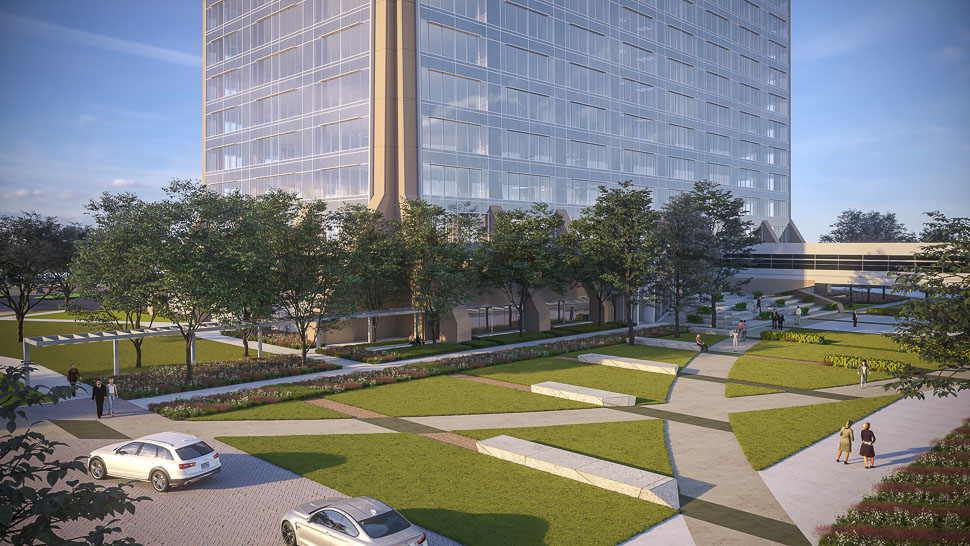
[Rendering: GFF]
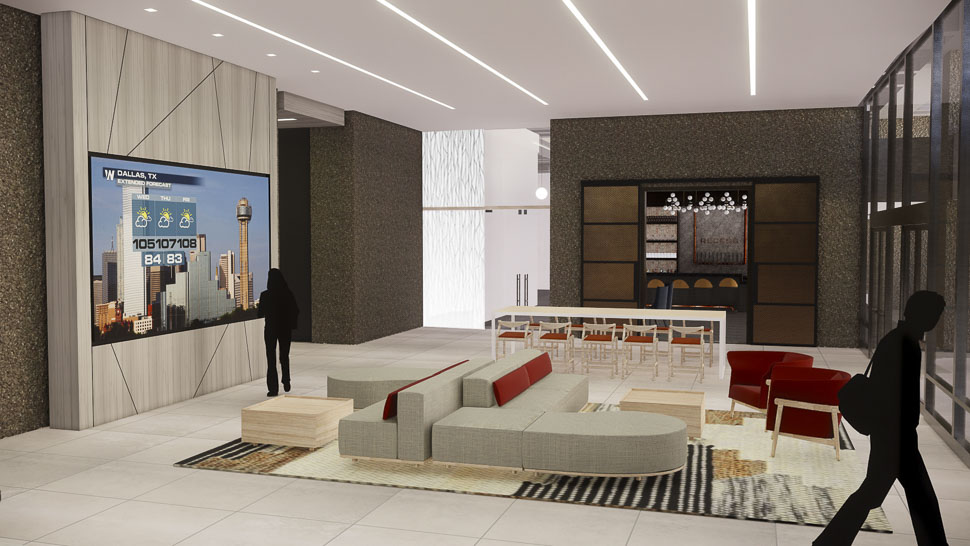
[Rendering: GFF]
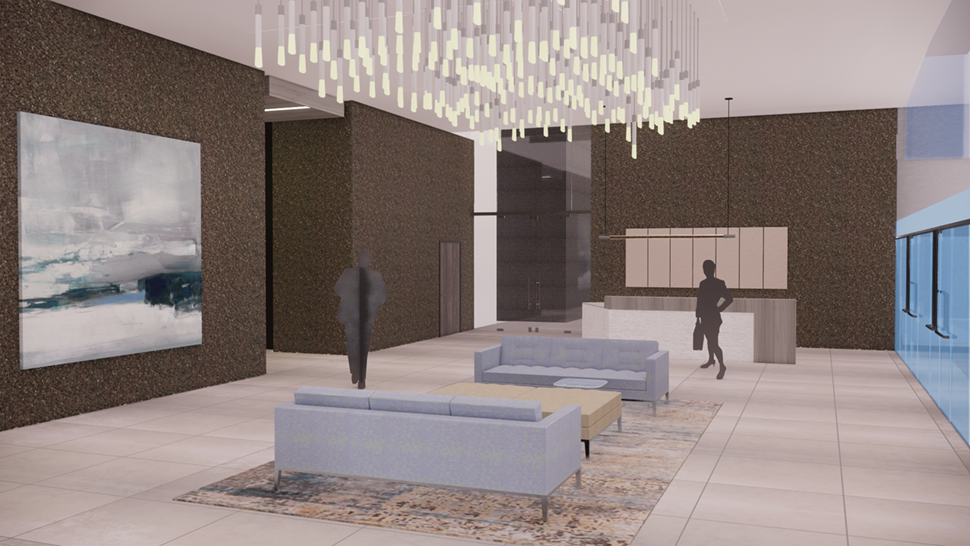
[Rendering: GFF]

[Rendering: GFF]
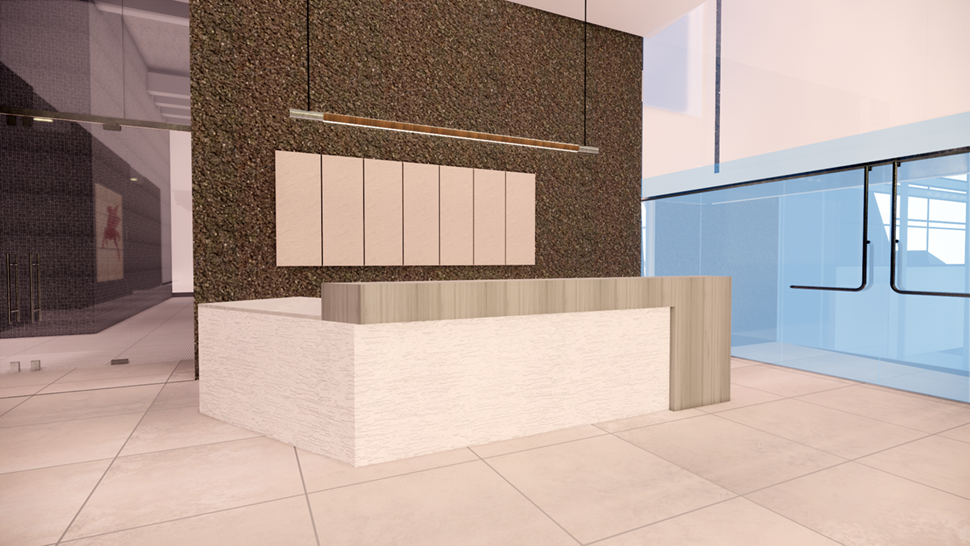
[Rendering: GFF]
![]()
Get on the list.
Dallas Innovates, every day.
Sign up to keep your eye on what’s new and next in Dallas-Fort Worth, every day.










